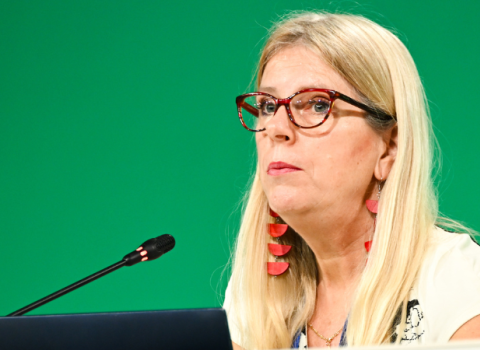It has been statistically shown that participating in COST Actions significantly increases the chance of success in making applications to other European programmes and acts as a career accelerator for young researchers.
COST’s (European Cooperation in Science and Technology) Final Impact Assessment under Horizon 2020, reflecting on the past seven years’ activities has been released. The in depth study highlights the massive role played by COST in the European research and innovation landscape and provides an overview of the networking, scientific and societal impacts of COST activities. The Final Impact Assessment addresses the relevance of the COST Programme and also indicates the areas and topics to be developed for the next Framework Programme, Horizon Europe, which starts in November 2021.
COST “small world” networks spreading excellence
COST Actions – the main instruments of the COST Programme, are organised in networks where knowledge spreads, ideas grow, and discussions happen on an infinite variety of scientific topics.
A unique feature of COST is the structure of the network itself. COST is not composed of a core of “super participants” connected in a hierarchical way but is instead a flat structure resembling a “small-world” where connectivity between participants is high, and average distance between them is low. As a result, COST Actions have encountered a tremendous success: on average, 60 new COST Actions have been founded every year – 669 Actions in total were active under Horizon 2020 – and about 92 000 individual researchers have benefitted from the networking tools provided by the Actions (meetings, Short-Term Scientific Missions, conferences, working groups, grants etc.).
In addition, the Final Impact Assessment points out that language barriers and geographical distance does not impede international connections, making COST a unique instrument to facilitate brain circulation. COST keeps making strong efforts to encourage participation in its networks, especially for researchers based in less research-intensive countries (referred to as Inclusiveness Target Countries – ITC) and for young researchers, authors of one quarter of COST’s publications. Joining COST is also facilitated by low entry barriers – making a proposal or joining an ongoing Action is an easy process – which reinforces researchers’ opportunities to expand and diversify their professional networks.
The “Stewardship Approach” – a shift in the COST Philosophy
COST has implemented a new set of activities under an innovative, more support-oriented approach towards COST Actions, based on the notion of COST becoming an “engaged investor” facilitating the success of Actions through empowerment and leadership: the Stewardship Approach.
First, a shift was operated in the first Management Committee (MC1) meeting, a kick-off meeting where Action participants meet for the first time. The format has evolved to be more interactive, allowing Action leadership, open discussion and trust between participants to be built. Next, the Science Communication Manager was introduced, with the objective to increase the Action’s visibility and to coordinate communication and dissemination efforts through tools, advice and training provided by COST.
Finally, a series of new activities were deployed to support COST Actions: COST Connect (2017), a series of workshop on targeted themes connecting Actions participants with relevant stakeholders; COST Academy (2018) which offers training, workshops, mentoring and webinars to COST Grant Holders, Action Chairs, Science Communications Managers as well as to individual participants. The COST Innovators Grants (2019) was also launched to enhance the pace and success of breakthrough innovations by bridging the scientific research of the COST Actions to marketable applications. COST aims to offer a platform for global cooperation, with a European centre of gravity; for researchers to interact and form global networks, to build and maintain long-term international cooperation between European and international partners: COST Global Networking
The COST Stewardship Approach was perceived positively and is considered a unique feature by stakeholders. It creates a trusting and inclusive atmosphere of ownership from the very start of COST Actions, enhancing the strength of the network as well as the speed with which participants come together. The Science Communication Manager is seen as a right step to increase the visibility of the results and impacts of the Action, while the COST Academy is considered a provider of helpful and role-specific training courses to COST Action representatives. Moreover, the COST Global Networking, benefits non-COST countries participants by expanding scientific networks integrating global knowledge streams.
COST – the most important networking instrument in Europe
As shown in the Final Impact Assessment, COST is recognised as a career accelerator by young researchers. From the perspective of non-COST countries as well, Actions are seen as an opportunity to expand and diversify professional networks. ITC researchers are key players as well; they are included in about 84% of connections, against 58% for non-ITC countries. The Assessment also underlines that the COST network is more gender-inclusive than previous framework programmes, reaching 42% of women participants.
However, the strongest aspect of COST is that it is perceived as a pre-portal to other European funding instruments both by internal and external stakeholders. It has been statistically shown that participating in COST Actions significantly increases the chance for success of applications to other European programmes: 37% of the Horizon 2020 proposals submitted by a consortium of COST Action participants are successful. Indeed, Actions provide the opportunity to meet a wide range of partners, allowing to form networks for calls in the Framework Programme.
The Final Impact Assessment vividly highlights the relevance of COST within the European Research Area (ERA), as an integral and complementary element of the European Framework Programmes. In that respect, COST truly is the largest and most important networking instrument for researchers in Europe.
Read the COST Final Impact Assessment for Horizon 2020
This article was first published on October 6 by COST.





 A unique international forum for public research organisations and companies to connect their external engagement with strategic interests around their R&D system.
A unique international forum for public research organisations and companies to connect their external engagement with strategic interests around their R&D system.